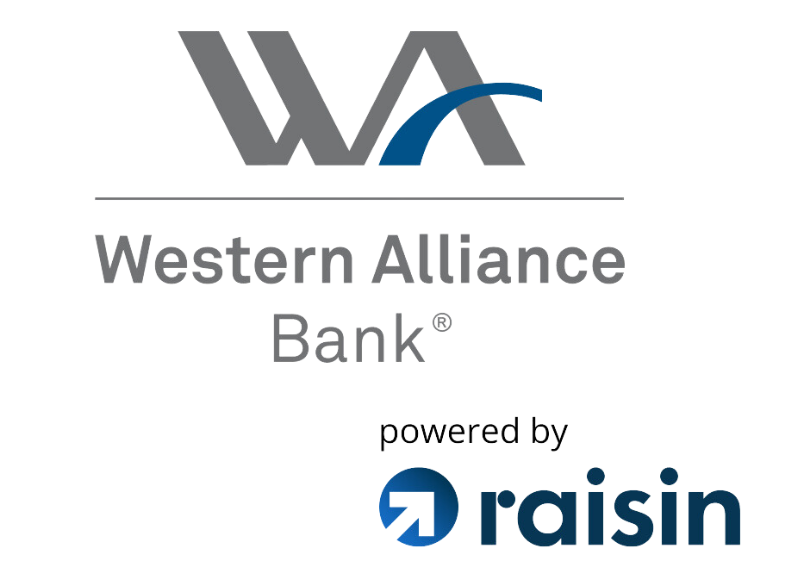A certificate of deposit (CD) is a special type of bank account that enables you to earn a high APY on your savings -- as long as you can leave the money untouched. Below, we explain how it works, the pros and cons, the types of CDs, and how to know if a CD is right for you.
What is a certificate of deposit (CD)?
Certificates of deposit, commonly known as CDs, are investment vehicles that offer higher interest rates than traditional savings accounts. Credit unions often call them share certificates. CDs are time-bound investments that require you to deposit a sum of money for a fixed amount of time, ranging from a few months to several years.
They are safe investments, insured by the Federal Deposit Insurance Corporation (FDIC) for up to $250,000 per depositor, per bank. CDs are a perfect investment option for those looking to earn higher interest rates without incurring risks associated with the stock market.
Compare CD Rates
| Bank & CD Offer | APY | Term | Min. Deposit | Next Steps |
|---|---|---|---|---|
|
Discover® Bank CD
Member FDIC.
Open Account for Discover® Bank CD
On Discover Bank's Secure Website. |
APY:
4.00%
|
Term:
1 Year
|
Min. Deposit:
$0
|
Open Account for Discover® Bank CD
On Discover Bank's Secure Website. |
|
APY:
4.50%
|
Term:
10 Months
|
Min. Deposit:
$2,500
|
Open Account for
On Secure Website. |
|
|
APY:
4.30%
|
Term:
6 Months
|
Min. Deposit:
$1
|
Open Account for
On Secure Website. |
What are the benefits of CDs?
CDs are ideal for those who want to avoid the volatility of the stock market and are looking for a predictable return on their investment. They are perfect for individuals with a low risk appetite and who want a stable source of income. Here are some of the key advantages of a CD:
- FDIC insured: CDs are almost always FDIC insured, so your funds are protected up to $250,000 in the event of bank failure. If you open a CD with a credit union, it may carry NCUA insurance instead, which is essentially FDIC insurance for credit unions.
- Widely available: CDs are available with most banks and credit unions. This ubiquity means a lot of competition, and that's good news for you. Banks will usually offer the best rates they can to encourage you to choose them over competitors.
- High APYs: You can earn a higher APY with a CD than you can with most other types of bank accounts, especially if you choose a CD with a longer term.
- Locked-in rates: This can be good or bad, but when rates are falling, the opportunity to lock in a higher interest rate could help you earn more than if you kept that money in a savings account.
What are the drawbacks of CDs?
Here are a few downsides to CDs you should bear in mind when deciding if this account type is right for you.
- Penalties for withdrawing money early: When you open a CD, you're tying up your money for months or even years, and you'll pay a penalty if you withdraw your funds early.
- One-time deposits and withdrawals: You cannot withdraw only part of your CD contributions, and you usually can't deposit more funds into an existing CD unless you choose an add-on CD.
- Locked-in rates: If interest rates rise after you've opened your CD, you're usually stuck at the lower interest rate for the remainder of the CD term.
- Lower returns: CDs' interest rates might be lower than other investment options like stocks and mutual funds, which could offer higher returns if invested wisely. If inflation rates exceed the interest rates on a CD, your returns might be eroded over time.
- Taxable earnings even if you can't access them: You still owe taxes on your CD earnings every year, even if you cannot actually spend that money yet.
What are alternatives to CDs?
If you don't think a CD is the right place for your money, here are a few other account types to consider.
High-yield savings account
High-yield savings accounts are usually offered by online banks. They're essentially the same as a regular savings account, except they offer a much higher interest rate, and some of them are comparable to CD rates.
Savings accounts limit you to six monthly transfers or withdrawals, but this is still much more flexible than CDs, which don't permit you to withdraw funds without penalty before the CD matures. You can also deposit money into the account at any time and this won't count toward your limit.
You can withdraw funds electronically or set up automatic bill pay. If your bank has branches, you can visit one to request your money, or use an ATM if your savings account includes an ATM card. Branches and ATM cards are rare with high-yield savings accounts, though, so you may have to transfer your money to a checking account before you can withdraw it.
Money market account
A money market account is similar to a savings account and offers high APYs that can come close to CD APYs. Money market accounts are subject to the same monthly withdrawal limitations as savings accounts, but they often come with checks and debit cards so you can withdraw funds directly from the account when you need them.
Money market accounts usually have higher minimum balance requirements than savings accounts, especially if they offer a high APY, so one of these accounts might be a better fit if you have a large sum to deposit and aren't willing to tie it up in a CD.
Is a CD right for me?
Generally, CDs are right for those who are looking for a low-risk investment option that will provide a guaranteed return over a fixed period of time. This makes CDs ideal for people who are risk-averse and prefer security over higher potential returns.
Additionally, CDs can be a good choice for retirees and other individuals who are looking to generate passive income from their savings without taking unnecessary risks. While CDs may not offer the highest returns compared to other types of investments, they can provide a reliable source of income and peace of mind for those who prioritize security and stability in their financial planning.
A CD is a smart choice for money you don't expect to need in the next few months or years. You can earn a higher interest rate with a CD than you would with a savings account, but early withdrawal brings a penalty, so it's something you want to avoid. If you're not comfortable risking your savings in the stock market, a CD offers a guaranteed return and a locked-in interest rate for the full term.
CDs aren't a good place for your emergency fund or for money you think you may need to call upon before the CD term is up. Use a savings account or a money market account for these funds instead, so you have easy access to them when you need them.
We've scanned the most popular banks to find CDs with high interest rates to make your money work harder for you. Get started by clicking below.
FAQs
-
CDs typically offer higher interest rates than a standard savings account. This means that you can earn more money on your savings in the long term. Additionally, CDs are safe and low-risk investments, meaning that you can rest assured that your funds will be protected. Another benefit of CDs is that there are various term lengths available, giving you the flexibility to choose a length of time that works for your financial goals.
-
One of the biggest disadvantages is the lack of flexibility. Once you deposit your money into a CD, you can't withdraw it without paying a penalty. Additionally, CDs typically offer lower rates of return than other investment options, such as stocks or mutual funds. This means you may miss out on potential earnings if you choose a CD over other investments. Finally, CDs typically require a higher minimum deposit than other types of accounts, which can be a barrier for some savers.
-
Generally speaking, withdrawing funds before the maturity date will result in penalties and fees, which can reduce your earnings. The penalties vary depending on the bank, the size of the withdrawal, and the remaining time left on the CD term. You will typically have to pay a fee, often one to three months worth of interest, to access your funds.
-
When a CD reaches maturity, it simply means that the term of the CD has come to an end and you have the option to access your investment or reinvest it. Typically, the bank or financial institution where you opened the CD will notify you of the maturity date and you may choose to renew the CD for another term, withdraw your funds, or transfer them to another account. It's important to keep in mind that if you don't take any action when your CD matures, the bank may automatically renew it for another term, which may not be at your desired interest rate.
We're firm believers in the Golden Rule, which is why editorial opinions are ours alone and have not been previously reviewed, approved, or endorsed by included advertisers. Motley Fool Money does not cover all offers on the market. Motley Fool Money is 100% owned and operated by The Motley Fool. Our knowledgeable team of personal finance editors and analysts are employed by The Motley Fool and held to the same set of publishing standards and editorial integrity while maintaining professional separation from the analysts and editors on other Motley Fool brands. Terms may apply to offers listed on this page. APYs are subject to change at any time without notice.


